#the literariness of media art
Text
Thinking of adaptation as intertextual dialogism aims at eliminating hierarchies between art forms by proposing that every work is bound in an infinite web of relations (in several media artworks, pop songs, for instance, play a key role). The idea of a network also questions the concept of authorship and characterizes each adaptation as a (re)writing that is as valuable as the hypertext.
Referring to the relationship between film and literature, Eikhenbaum emphasizes that although both are specific in their modes of expression, they are not isolated: “None of the arts are fully bound entities, since syncretic tendencies are inherent in each of them; the whole point is in their interrelationship, in the grouping of elements under one sign or another” (Eikhenbaum 1973 [1926], 124f). The context of intertextuality frames the process of adaptation as an interart mechanism triggered by cues in the literary text.
Claudia Benthien, Jordis Lau, Maraike M. Marxsen, from The Literariness of Media Art
#claudia benthien#jordis lau#maraike m. marxsen#the literariness of media art#nonfiction#essays#2022 reads#*
24 notes
·
View notes
Text
I NEED ADVICE!
This is my third pass at this character and this is where I’m at so far!
In case you didn’t see my previous posts, I’m writing a comic based in post-apocalyptic Peru. It’ll have major elements of the Inca empire mixed with modern elements but also more cyberpunk elements.
I know it’s a lot but I’m convinced it’ll create something unique and really interesting.
The man below will be the leader of the last surviving peoples and father of one of the main characters!
Keep in mind that their society isn’t struggling, they’re thriving. The nuclear explosion happened years prior and they’ve already rebuilt while taking inspiration from the Incan empire to run things.
So this man is their Sapa Inca, or their King. He’s meant to represent traditionalism but also the control over machinery. As he believes cybernetics and hardware are merely tools for people to use.
Just thought I should give a bit more of a backstory!
With this pass of the design I added far more details and cybernetics to him but I’m really more sure if it’s too much?
Someone said his face looked too busy and I do see that but I think I’ve been staring at it for too long.

Also, all of the textiles and patterns I’ve drawn are really just placeholders as I can only do so small with my markers and the comic will 100% be done digitally, so I’ll have far better control and fully plan on either finding or creating specific brushes for all the patterning.
Most circles in his design will actually be glowing stones that’ll shift in hue depending on the tone of the scene he’s in.
There’s some parts I don’t like about his design like his boot and I’m not fully sold on the design of the cybernetics as I’ve seen some more sleeker designs that I might use instead. But I’m really not sure.
If anyone has any advice or ideas or even critiques them I’d love to hear them!
Being culturally accurate is also extremely important to me, so if anyone who is more versed in that department has any advice or criticisms then please let me know.
Especially if anything is offensive.
@andeanbeauties
@thebeardedladyofthelake
@batmeringue
Sorry for the tagging but you all commented on the last part and I thought you might want to see the next one! There was also others I wanted to tag but for some reason tumblr wasn’t letting me! So I’m so sorry for that!!
#comic#character design#character design advice#inca#peru#peruvian#peruvian character#cyberpunk#andes mountains#andespeople#andean#andeanpeople#critique welcome#media critique#literary critique#character critique#character concept#my characters#character illustration#character art#character reference#original character#oc artwork#my oc art#oc art#oc artist#original cartoon#comic writer#my comic#comics
32 notes
·
View notes
Text
Sven Bikerts provides an epochal framework for this anxiety in The Gutenberg Elegies: The Fate of Reading in an
Electronic Age, originally published in 1994 and reissued in 2006. “The
decade of the 1990s,” Bikerts claims, “was a classic historical watershed”
(xi), marking the irrevocable influence of digital technology on the way
people think and relate to each other. For Bikerts, “the societal shift from
print-based to electronic communications is as consequential for culture as
was the shift instigated by Gutenberg’s invention of movable type” (192).
The effect, he argues, was to transform our sense of society being composed of isolated individuals who seek solace in the introspective contemplation and subjective immersion in deep time afforded by literature, to
one of information seeking citizens interconnected by a digital grid which keeps them perpetually in the present moment. This “network consciousness” (202), Bikerts argues, is at odds with the experience of inwardness
cultivated by serious reading, and this explains the waning influence of literature in contemporary culture. A natural consequence is that “the writer’s social and cultural status is as low as it has been for centuries. If there is anything consoling to be said, it is that the need for the writer is right
now probably as great as ever” (208).
- The Return of the
Omniscient Narrator
Authorship and Authority in
Twenty-First Century Fiction
By Paul Dawson
#reading#writing#quotes#literature#novels#the novel#literary criticism#culture#cultural criticism#the novel and culture#authority#cultural authority#literacy#digital media#digital culture#internet culture#collective unconscious#collective consciousness#art#art and culture#society#sociology#creativity#politics#politics and art#amwriting#amreading#omniscient#omniscient narrator#narrative
13 notes
·
View notes
Photo
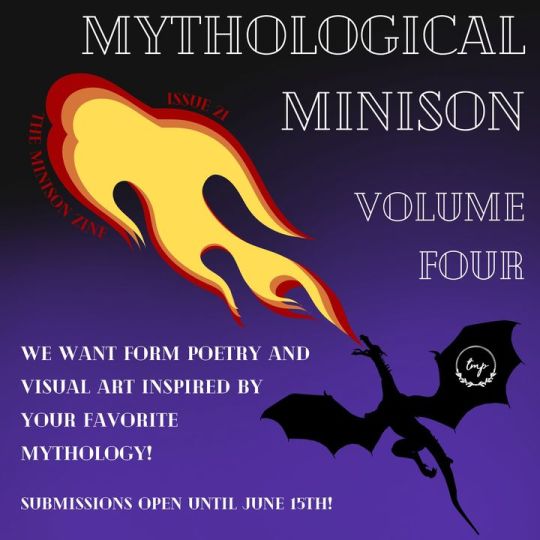
Volume 4 of Mythological Minison is waiting for your submissions! Submit your form poetry and myth-y visual art here: https://theminisonproject.com/theminisonzine/zinesubmissions/ #mythologicalminison #theminisonzine #mythology
#Writeblr#writblr#creative writing#bookblr#writers on tumblr#poetry#prose#writing#spilled ink#spilled thoughts#writingcommunity#poetic#poems on tumblr#writer#writers#artists on tumblr#poets on tumblr#poets and writers#writers and poets#literary magazine#lit mag#poets wanted#writers wanted#artists wanted#submissions open#original art#graphic art#photography#mixed medium#mixed media
2 notes
·
View notes
Text
Does anyone have moments when someone is telling you about their real life experiences with relationships or other people and you notice patterns of behaviour you have seen before in literature/media and then you have a sort of Deja vu moment
#I’m doing the opposite of literary analysis#when you talk to me you’re the protagonist maybe sometimes the unreliable narrator in my mind#all the people you know are side characters I’m analyzing through a literary lense somewhat#this is a common occurrence now that most of my closest relationships are long distance#and I’m physically removed from your environment#when you talk about people’s reactions and behaviour I get that feeling “as I’ve seen that before”’#but it’s nit in one specific book or piece of media but scattered throughout media I have consumed#breaking off little pieces of the lives of imagpeopld to make sense of the puzzle of yours#idk how to tag this#musings#life and art#literature analysis
4 notes
·
View notes
Note
Hi, no judgement I'm just curious, what does it mean to be anti-fandom?
you know how fandoms behave? the groupthink? like genuinely a kind of mob mentality? are you familiar with the phenomena of fanon overtaking canon? of people being completely unable to analyze a work outside of a distinctly FANDOM lens? like all they care about is "i'm in denial about this character dying" and "it's canon in my heart" and the neil-gaiman-worshipping ass bullshit about how "we told canon to get lost!"
at this point, what i'm about to say is an ice cold take but that shit's annoying. beyond annoying, it's fucking disgusting to me. everything is just tropes to them, it's "but i want to be the protagonist, too!"
it's literally like marketing to them. everything is diluted, nothing is genuine, nothing is real. it's all just cheap imitation. everything is "transformative" fanfiction and fanart and no matter how many times they re-read, rewatch, replay the source material, the hermeneutic cycle has long since died; they bring no new genuine experiences to their re-examination of the work as it truly exists, only "i loved this completely incoherently derivative AU fanfiction so much i'm going to re-read the series with that as my perspective/framework", over and over and over. each time getting further and further from coherence. everything is hollow. everything has been eaten out from the inside.
like whatever if people want to call this dramatic then fuck them. if/when a work of fiction matters to you, like really matters to people, WHY is it that the fandom's first instinct is to remove these characters, whose meaning is defined by the story in which they exist, hollow them out, project themselves into them, and treat these stories and source material like everything has to be theirs now? why does everything have to be shallow derivatives of an original? can you not examine characters as they really are? get to know them as they exist? is that really such a difficult task?
and when it comes to murderbot, why not make a secunit oc? why must the fandom treat murderbot like it's a doll, it's a possession that belongs to them. is its entire story not an arc about autonomy and personhood? is that not the fucking core and soul of its source material? has it not expended chapter after chapter explicitly reminding the reader that it fucking hates being forced to do things it doesn't want to do? what genuine substance, what meaning is being brought by the fans, the fandom? anything? i have seen nothing but depraved conduct from the murderbot fandom. people are expected to "just let people enjoy things 🥺" as if that sentiment doesn't come from the most pathetically insecure corners of their fandom-brained shipping-sick heads. let people enjoy things? who's fucking stopping you from enjoying things? can you not handle difficult source material without sweetening it and processing it to make it easier to swallow? the flagrant disregard for genuine representation of a perspective that i have never seen represented before is what really sickens me, it's just so deeply wrong. there's something so horribly corrupted and repulsive about that.
and yes i take this very personally because i resonate deeply with the pov the murderbot diaries portrays, but on a more objective level, 'fandom' is not a sustainable way to approach anything. it's not a sustainable way to watch films or television shows, it's not a sustainable way to analyze music (have you fucking seen how swifties behave? do you remember how directioners behaved?), videogames, poetry, books, artwork, anything. anything except franchises. ask yourself, is murderbot a fucking franchise to you? then go to the fandom wiki, patronize the fandom reddit, participate in the fandom discord server, leave kudos on fanfiction written by the franchisees putting their own spin on murderbot like it's a hard rock cafe.
there has to be a line drawn sometimes between 'harmless fun' (here's an idea: make some fucking OCs!) and creating fandomized misrepresentations of source material that already possesses an incredible soul... and replacing that soul with something soulless.
and i'm not fucking saying that people have to agree with me. i know people disagree strongly with me. yes, i think the people who disagree are fucking kidding themselves, inhaling the fandom nitrous-oxide, and 'turning their brains off' instead of engaging critically with the literature itself. but this is my opinion. this is what i feel and believe.
#everything has to be a fucking franchise with a fanbase now it's insane#there has to be shipping and fanfiction and no one can engage with the text anymore#no one knows what a literary device is all they care about is friends to lovers 14000 words 28 chapters on ao3#how does that not make people want to scream#how has this seriously become what EVERYTHING is 'ABOUT' now?#i say this with every ounce of seriousness: people need to wake up about fandom and media 'consumption'#why are you turning art into a consumable fucking product!!!!!!!!!!!#does the artist mean nothing? does authorial direction and intention mean nothing?#no one even knows what death of the author fucking means#HOLLOW!!! EMPTY!!!!! PLASTIC!
11 notes
·
View notes
Text



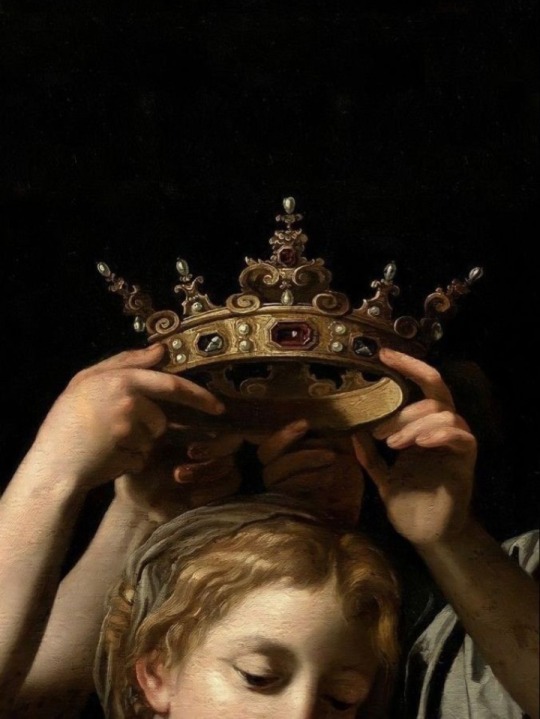

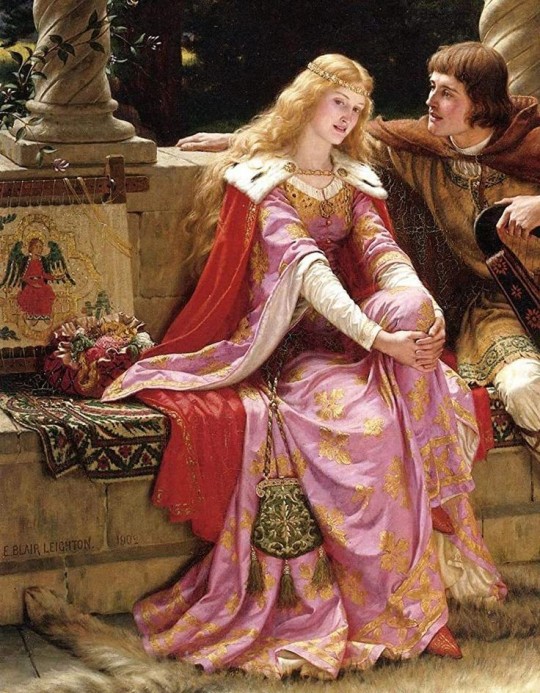

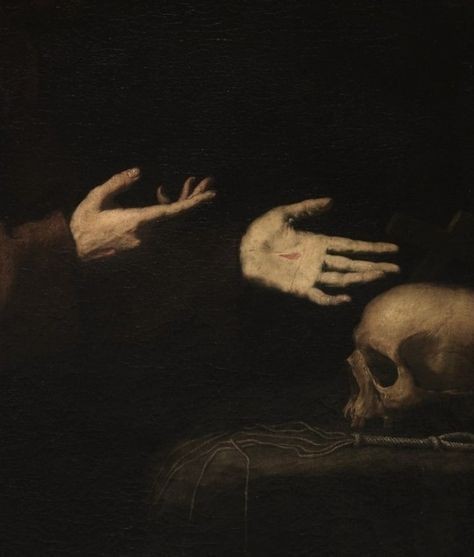

⚜
#dark art#medieval#idade media#aesthetic#art#fyp#picsart#medieval art#books and literature#pra voce#fypage#fypシ#game of thrones#dungeons and dragons#cottage aesthetic#foryou#france#italia#literary#bookish
8 notes
·
View notes
Text
My PDF of the Karate Kid novelization is full of whole page illustrations and doodles for fun, that it doesn't have anymore room for actual annotations — which sucks, because that means I have to get rid of things like him
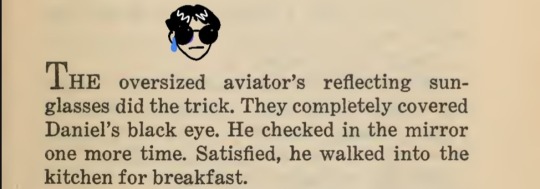
#Look at my digital doodle of Daniel#Before he dies LOL#Sayonara you stupid fruit#Daniel LaRusso#Karate Kid Academia#← new tag for Karate Kid literary media and similar#My Art ... I guess..#Miyagi-horiginal
6 notes
·
View notes
Text
i think the most insidious thing about cringe culture is that it restricts our ability to seriously inquire on the sorts of media we take for granted -- if you are shamed for even consuming {BAD_MEDIA_X}, then it is impossible to publicly critically engage with these media -- both to appreciate aspects of artistry found in something otherwise mediocre, but also to dissect the harmful ideas that these media disseminate, which is especially worrying for media produced for children.
#cringe culture#yes this is about the glorb post but its also about my skibidi toilet post soviet art thesis#but any art will tell you about the values and preoccupations of its creators#thats like fundamentally true#and we're allowed to investigate that with socially acceptable art#(or it's a fun gimmick when it's about like sherlock)#but the ruthless bullying we've become accustomed to online means it's impossible to probe or appreciate certain “off limits” media#eg you'd be called cringe or otherwise looked down uponfor seriously engaging with five nights at freddys on the level of literary criticis#and that really dampens our ability to have meaningful conversation!#which is especially concerning with childrens media#since children aren't as capable as adults to question the assumptions they're given (especially in media)#so to an extent talking about this is looking out for them
2 notes
·
View notes
Text
According to Eikhenbaum, then, the difference between the language of film and that of literature is that literature moves from speech to visualization and film from visualization to internal speech. Yet instead of limiting film to a pure visual art form, Eikhenbaum values the subtitle, the word, as being “buried so deeply that it must be divined” (ibid., 125). Considering both ‘languages’ with regard to the cognitive responses of the recipient can become the bridge between them. These ideas resonate with Kamilla Elliott, who further develops Bluestone’s theory by looking for structures of analogies between literary tropes and the filmic images concerning the reader’s or viewer’s respective cognitive response (cf. Elliott 2003, 209–222). Elliott does so in order to “navigate between the visual and the verbal within as well as between signs and arts,” suggesting that “if a verbal metaphor raises mental imaging, then conversely and inversely, a pictorial metaphor raises mental verbalizing” (ibid., 221). Media artworks may not simply translate the literary devices of their precursors or borrow lines, characters, or plot elements; equivalences may also be found in the effect they have on the readers, and respectively the viewer’s, experience of perception.
Claudia Benthien, Jordis Lau, Maraike M. Marxsen, from The Literariness of Media Art
#claudia benthien#jordis lau#maraike m. marxsen#the literariness of media art#nonfiction#essays#2022 reads#*
17 notes
·
View notes
Text
Voices and Pages: Navigating the Pros and Cons of Oral and Written Communication
In the vast tapestry of human communication, two fundamental threads have woven intricate patterns throughout our history: the spoken word and the written script. Both modes of expression, oral and written, bear their unique strengths and weaknesses, shaping the ways we share information, preserve culture, and advance as societies.
Oral Communication: The Power of Spoken Words
Advantages:
1. Immediate Impact: The spoken word carries an immediacy that written language often lacks. In face-to-face interactions, nuances of tone, pitch, and rhythm enrich the message, fostering a deeper connection between speaker and listener.
2. Dynamic Adaptation: Orality allows for real-time adjustments. A speaker can gauge the audience's reactions and tailor their message accordingly, ensuring comprehension and engagement.
3. Cultural Tradition: Many cultures have passed down their histories, myths, and wisdom through oral traditions. Storytelling, poetry, and oral epics are integral to preserving the essence of diverse cultural narratives.
Disadvantages:
1. Ephemeral Nature: Spoken words are transient, existing only in the moment. Once uttered, they often fade into the recesses of memory, unless intentionally recorded or passed down through generations.
2. Limited Reach: Oral communication has geographic limitations. It primarily serves immediate, local audiences, making it challenging to convey complex information across vast distances without distortion.
3. Subject to Interpretation: The absence of a fixed script can lead to misinterpretations. The same oral narrative might be recounted differently by different individuals, introducing variations and potential inaccuracies.
Written Communication: Unveiling the Power of the Written Word
Advantages:
1. Permanent Record: Written language creates a lasting record. From ancient scrolls to digital archives, written communication preserves knowledge, allowing it to transcend time and be shared widely.
2. Precision and Clarity: The written word allows for precise expression. Authors can carefully craft their messages, providing clarity and reducing the likelihood of misinterpretation.
3. Global Reach: With the advent of written languages and translation technologies, written communication can traverse continents, enabling the dissemination of information on a global scale.
Disadvantages:
1. Lack of Immediacy: Unlike oral communication, written messages lack immediacy. Responses are not instantaneous, potentially impeding dynamic, real-time exchanges.
2. Fixed Expression: Once written, a text is static. It remains unchanged unless intentionally edited. This lack of adaptability can be a drawback in situations that demand flexibility.
3. Potential for Misinterpretation: Despite efforts to be precise, written communication is susceptible to misinterpretation. Readers bring their own perspectives and experiences, influencing how they understand written words.
In the ongoing evolution of communication, the interplay between oral and written forms continues to shape our understanding of the world. Whether spoken in the heat of the moment or etched onto pages for posterity, each mode carries its significance, contributing to the rich tapestry of human expression.
#philosophy#epistemology#knowledge#learning#education#chatgpt#politics#Oral Communication#Written Language#Linguistics#Communication Styles#Literary Arts#Information Transmission#Technological Impact#Cultural Narratives#Societal Development#Media Evolution#psychology#ontology
2 notes
·
View notes
Text
i know that last post was kind of pretentious for an rvb blog but mzbxnxbxnxbnx i genuinely think any amount of engaging with intellectual discussions about media is great! it’s fantastic! it’s my favorite thing in the whole wide world. i love when people think
#i love art criticism i love art criticism sooooo much#i love media analysis i love literary debates#i love when people engage things on a deeper level it’s sooo good it’s so good
6 notes
·
View notes
Text
every day i wake up and i’m subjected to seeing people on tumblr completely misuse the phrase "death of the author" without a hint of irony
#it's not a coping mechanism and it doesn't mean separating the art from the artist#it's a concept in media analysis that pertains to AUTHORIAL INTENT#i fucking BEG you to AT LEAST check out what the goddamn concept MEANS before you throw it around#jesus CHRIST is it annoying#shatou.txt#(media/literary analysis. i typed too fast)
14 notes
·
View notes
Text
the evil voices inside my head: but surely this discussion requires the input of someone much more generally Humanities-sympathetic with an enormous murderboner for Literary Criticism specifically
#grade school students should be exposed to art including written fiction but primarily as enrichment#there is certainly a place for teaching reading comprehension and some basic analytical skills alongside this?#but that’s not a substitute for explicitly teaching media and information literacy#don’t talk to me about english lit/literary criticism at undergraduate level or higher
6 notes
·
View notes
Photo

Click click goes The weaving loom. "Click Click Goes the Loom" by Regina Jade, pdf pg. 10 Check out the minison zine archives to read more from Issue 12: https://theminisonproject.com/theminisonzine/tmzarchive/ #theminisonzine #TheMinisonProject #poetry
#Writeblr#writblr#creative writing#bookblr#writers on tumblr#poetry#prose#writing#spilled ink#spilled thoughts#writingcommunity#poetic#poems on tumblr#writer#writers#artists on tumblr#poets on tumblr#poets and writers#writers and poets#literary magazine#lit mag#poets wanted#writers wanted#artists wanted#submissions open#original art#graphic art#photography#mixed medium#mixed media
2 notes
·
View notes
Text
so death of the author, right?
Separating art from the artist is an important tool in the context of literary analysis. NOT casual consumption. You separate the artist from their work so that you can analyze the work itself on it's own merits and all of the themes and devices being used to make it what it is. It does NOT mean ignoring the fact a creator is shitty so that you can keep casually enjoying their work for fun.
You separate art from the artist so that you can accurately analyze Birth of a Nation for a cinematography class and understand all of the cinematic tools and techniques that made that horriffic propoganda film one of the most influential pieces of cinema to ever be produced in ye olde days of american cinema.
You do NOT separate art from its artist when so you can pretend that shitstain on a film strip was good to watch for fun. Or when you're trying to justify Drag Race because you just like it that much, nor when you pop in an Elvis Presly record, nor while watching yet another shitty She-who-cannot-be-named book, or when R.Kelly comes up on that playlist you shouldn't still have.
You separate the art from the artist so you can figure out why a sewer rat tastes like pumpkin pie in a fucking lab, not so you can justify frying that shit into a sunday platter. FUCK.
#anyway#carry on vibing#I saw a post and had to get that out of my system#death of the artist#death of the author#separating art from the artist#writing#literary analysis#media analysis#no ass fucking for losers#fuck off#terfs#queerphobes#tenderqueers#you're ugly and stupid
2 notes
·
View notes